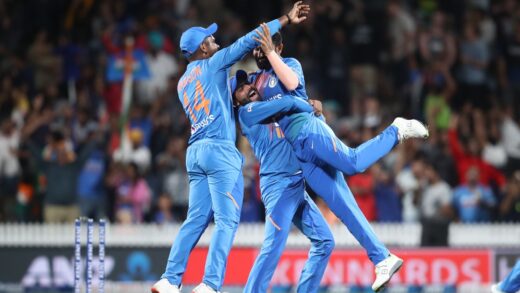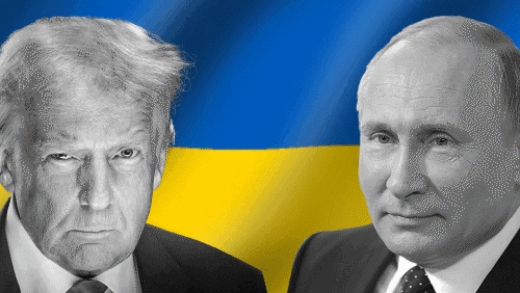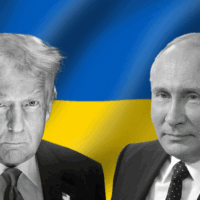UNITED NATIONS, Jan 21 (IPS) – On January 15, 2025, the long-awaited ceasefire proposal between Israel and Hamas was approved, bringing the first bout of relief for the people of the Gaza Strip after 15 months of conflict. This has allowed for the exchange of prisoners and hostages between the two nations as well as a greater flow of humanitarian aid to be directed to Gaza. Although this only accounts for the first phase out of the three phase plan, it is uncertain if Israel will continue to uphold the negotiations of a truce after the first phase is completed.
On January 20, the International Committee of the Red Cross (ICRC) issued a press statement in which it was confirmed that they facilitated the first transfer of hostages and prisoners between Israel and Hamas. In the statement, the ICRC stated that three Israeli hostages had been returned to Israel from Gaza and 90 Palestinian prisoners had been returned to the occupied Palestinian territory.
The ICRC described exchange operations between the two nations as “complex” and requiring “rigorous” safety measures to be upheld. The hazards of unexploded artillery, large crowds, and destroyed infrastructure made these operations particularly meticulous. Specialized ICRC staff, including doctors, were on the frontlines and provided medical care as the exchanges took place.
“We are relieved that those released can be reunited with their loved ones. Ensuring their safe return and providing the necessary care at this critical moment is a great responsibility. More families are waiting anxiously for their loved ones to come home. We call on all parties to continue to adhere to their commitments to ensure the next operations can take place safely. Our teams are ready to continue to implement the agreement so that more hostages and detainees are released, and more families reunited,” said ICRC President Mirjana Spoljaric.
In the statement, the ICRC reiterated the urgency of the humanitarian situation that has amounted in Gaza since October 7, 2023. Gazans have struggled for over one year for access to food, clean water, electricity, fuel, and shelter. In addition, access to most basic services, such as sanitation, education, and healthcare, have been significantly reduced.
Concurrent with the exchanges of detainees between Israel and Palestine, the United Nations (UN) Secretary-General, António Guterres, addressed the Security Council on the current situation in Gaza. Guterres stated that the UN remains dedicated to facilitating a peaceful transitional period for both nations, adding that both parties must “make good” on the terms of the ceasefire agreement. This includes a complete cessation of hostilities and an uninterrupted flow of humanitarian aid to Gaza.
“I urge the Security Council and all Member States to support all efforts to implement this ceasefire, bring about a permanent cessation of hostilities, ensure accountability, and create the conditions for recovery and reconstruction. The international media must also be allowed into Gaza to report on this crucial story on the ground. We must seize the opportunity presented by the ceasefire deal to intensify efforts toward addressing governance and security frameworks in Gaza,” said Guterres.
Guterres adds that the UN must have safe and unimpeded access through all available access points in Gaza to deliver essential resources and basic services and to rebuild critical infrastructures in the enclave. On January 19, the World Food Programme (WFP) released a press statement in which they confirmed that aid trucks have begun crossing into Gaza. WFP seeks to facilitate the daily delivery of 150 trucks of aid material into Gaza from all available border crossings. Trucks from Jordan and Israel aim to reach civilians in the north of the enclave and trucks from Egypt aim to reach people in the south.
Additionally, WFP has delivered 5,000 litres of fuel, as well as food parcels, bottled water, winter clothes and vaccines. Furthermore, 33 patients, nearly a dozen doctors, and 16 administrative staff remain in the Al Awda Hospital. Access remains extremely challenging due to continuing security concerns.
On January 20, The Palestinian Non-Governmental Network (PNGO) and the Association of International Development Agencies (AIDA) released a joint statement in which they welcomed the implementation of the ceasefire agreement and highlighted the vast scale of needs facing the people of Gaza. The two organizations urged all parties involved to monitor the full implementation of the ceasefire agreement and investigate all violations of international humanitarian law.
“They must ensure accountability through investigations, support international legal bodies, and establish an international mechanism to address ongoing violations. Ending impunity is crucial to breaking cycles of violence, for Palestinians, the region and all of humanity. We call on all parties to the conflict and the guarantors to honor and ensure the full implementation of the ceasefire agreement. This ceasefire must only be the beginning of a crucial process toward justice, peace and dignity for all. Palestinian voices must be centred in all rebuilding negotiations for a meaningful solution to end the suffering of the Palestinian people,” said a spokesperson for the two organizations.
On January 18, Israeli Prime Minister Benjamin Netanyahu, in a televised statement, informed reporters that the ceasefire is temporary and that Israel reserves its right to resume its offensives with the support of the United States if Hamas doesn’t comply with their end of the deal. “If we need to resume fighting, we will do that in new ways and we will do it with great force,” said Netanyahu.
The statements by Netanyahu have generated much concern among political analysts and humanitarian organizations that the ceasefire may not be implemented fully. Marc Lynch, the director of the Middle East Studies programme at George Washington University, opined that the ceasefire will likely not move past phase one and permanent peace will not be achieved.
“There are endless openings for spoilers on both sides, and serious disagreements remain about the details of the agreement’s next steps. In Israel, there are many people who would like to see this war prosecuted indefinitely,” said Lynch.
IPS UN Bureau Report
Follow @IPSNewsUNBureau
Follow IPS News UN Bureau on Instagram
© Inter Press Service (2025) — All Rights ReservedOriginal source: Inter Press Service
Source link
#Phase #IsraelPalestine #Ceasefire #Begins


















